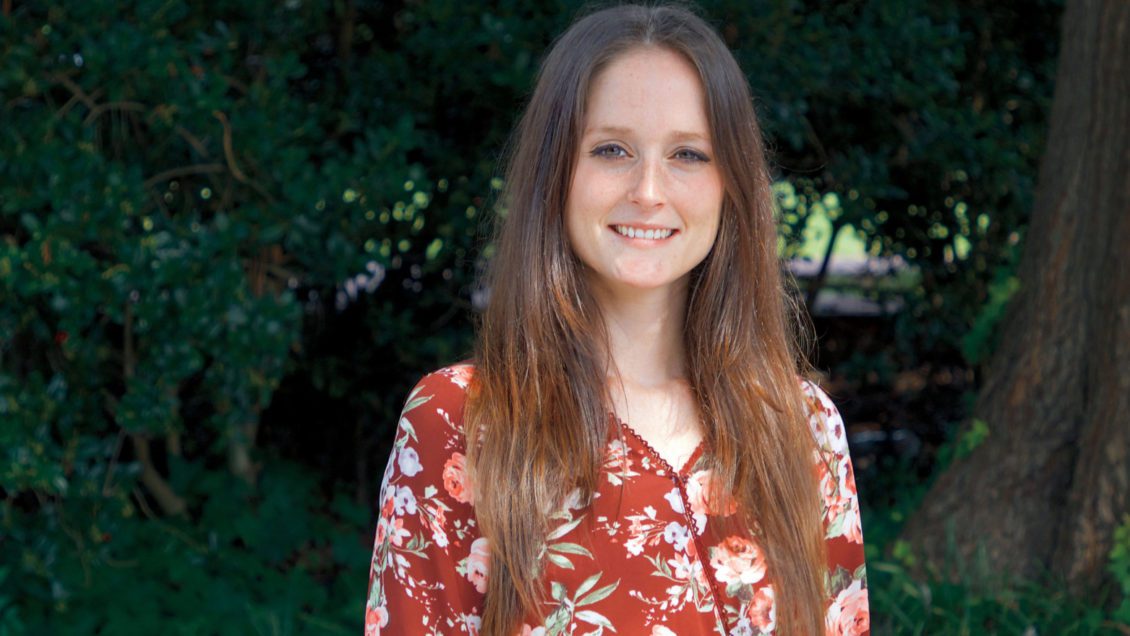CLEMSON — When she was a young child, Clemson astrophysics graduate student Jordan Eagle enjoyed viewing the stars and planets with her father. “Looking through the telescope with him really ignited my interest in the universe,” she said.
In January, Eagle will begin a two-year research project at the Harvard-Smithsonian Center for Astrophysics (CfA) in Cambridge, Massachusetts, courtesy of a Chandra X-ray Observatory pre-doctoral fellowship, which provides her with funding to complete her doctoral work.

While at the CfA, Eagle will analyze data collected from several telescopes — Chandra, NuSTAR, and the Fermi-LAT — which all orbit the Earth, detecting X-rays and gamma-rays from exploded stars, clusters of galaxies and matter around black holes. Her objective is to help solve the longstanding question of where cosmic rays come from.
Cosmic rays are super fast-moving charged particles that strike the Earth from outside the solar system, and they can cause electronic problems in satellites and other space instruments.
Although scientists speculate that cosmic rays may come from the sun, supernova explosions and around black holes, they don’t know for certain where they originated because their paths are altered by the magnetic fields of stars and other environments in the Milky Way galaxy.
“It’s a really challenging question to answer in high-energy astrophysics,” said Eagle, who will focus on gamma ray-emitting pulsar wind nebulae to determine how they play a role in the cosmic rays’ origins. “If we can answer it, then we can understand other systems and galaxies.”
Eagle, who is a member of associate professor Marco Ajello’s research group, aims to graduate with her Ph.D. in 2021 and pursue a research career with industry, NASA or other government lab. During the next two years, she’ll return occasionally to Clemson to give research talks and ultimately to defend her doctoral dissertation.
“I’m excited to be a pre-doctoral fellow because I’ll be completely immersed in research I love, working alongside leading experts and I’ll make even more connections in my field,” she said.
Eagle said she hopes other Clemson students will be inspired to apply for similar fellowship opportunities. “Physics doesn’t come naturally to me,” she said, recalling how she struggled with math and science courses as an undergraduate at Radford University. “A lot of times people think you have to be this innately brilliant person and that’s how all physicists are, but a good work ethic helped me succeed.”
Get in touch and we will connect you with the author or another expert.
Or email us at news@clemson.edu

